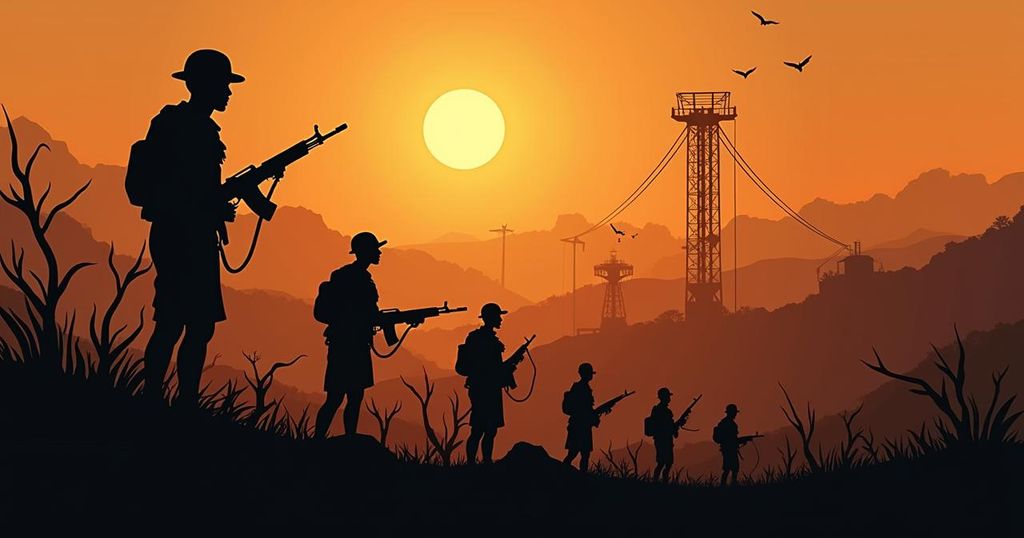UN Report: M23 Rebels Profiting from Coltan Mining in Eastern Congo

Rebel groups in eastern DRC, notably the M23 movement, have gained control over the Rubaya coltan-mining region, generating approximately $300,000 monthly through a production tax. The situation has led to severe humanitarian crises, with increased militarization of these groups and ongoing exploitation of civilians. UN officials emphasize the urgent need for international sanctions to address these issues and facilitate peace.
The Democratic Republic of Congo (DRC) is currently facing a severe crisis in its eastern regions, where rebel groups have gained significant control, particularly over the Rubaya area known for coltan mining. The M23 movement, believed to have the backing of Rwanda, has taken control of this strategic region following violent confrontations in April. According to Bintou Keita, the head of the United Nations mission in Congo, the minerals extracted from Rubaya, which are vital for the global technology industry, generate approximately $300,000 in revenue each month for these armed groups. This revenue stems from a newly imposed production tax by the M23 rebels. Keita emphasized that the Rubaya site is crucial, accounting for more than 15% of the world’s tantalum supply, a mineral deemed critical by both the United States and the European Union. The consequences of this conflict have been dire, resulting in thousands of fatalities and the displacement of over a million individuals since the M23’s resurgence in March 2022. These events highlight the ongoing exploitation that civilians endure, with reports indicating that some have been subjected to conditions akin to slavery. Furthermore, the situation has prompted manufacturers to reassess their supply chains to prevent utilizing materials sourced from conflict regions like eastern Congo. Keita warned that as the revenue from mineral trade increases, armed factions are evolving into militarized entities, strengthening their dominance both financially and in terms of military capability. He asserted that without international sanctions against those profiting from this illicit trade, peace within the region will remain unattainable, and civilian suffering will persist.
The Democratic Republic of Congo is characterized by vast mineral wealth, particularly in tantalum, which is critical for modern electronics. However, this natural resource abundance has led to prolonged conflict as various armed groups vie for control over lucrative mining territories. The recent activities of the M23 movement indicate a disturbing trend where rebel groups not only engage militarily but also establish economic control over resource-rich areas. This has presented significant challenges for both local populations and international stakeholders seeking to ensure ethical sourcing of minerals. The ongoing conflict and subsequent rise in violence have escalated humanitarian crises, making it essential for international intervention and stabilization efforts.
The United Nations Security Council’s report on the situation in eastern Congo indicates a troubling trend where armed groups thrive through the exploitation of mineral resources, particularly in the Rubaya area. With significant monthly revenues facilitating their militarization, rebels such as the M23 pose a substantial threat to regional stability and civilian welfare. Urgent international actions, including sanctions, are deemed necessary to disrupt this criminal economy and alleviate the suffering of the Congolese people. Without such measures, achieving lasting peace remains unlikely.
Original Source: www.mining.com








